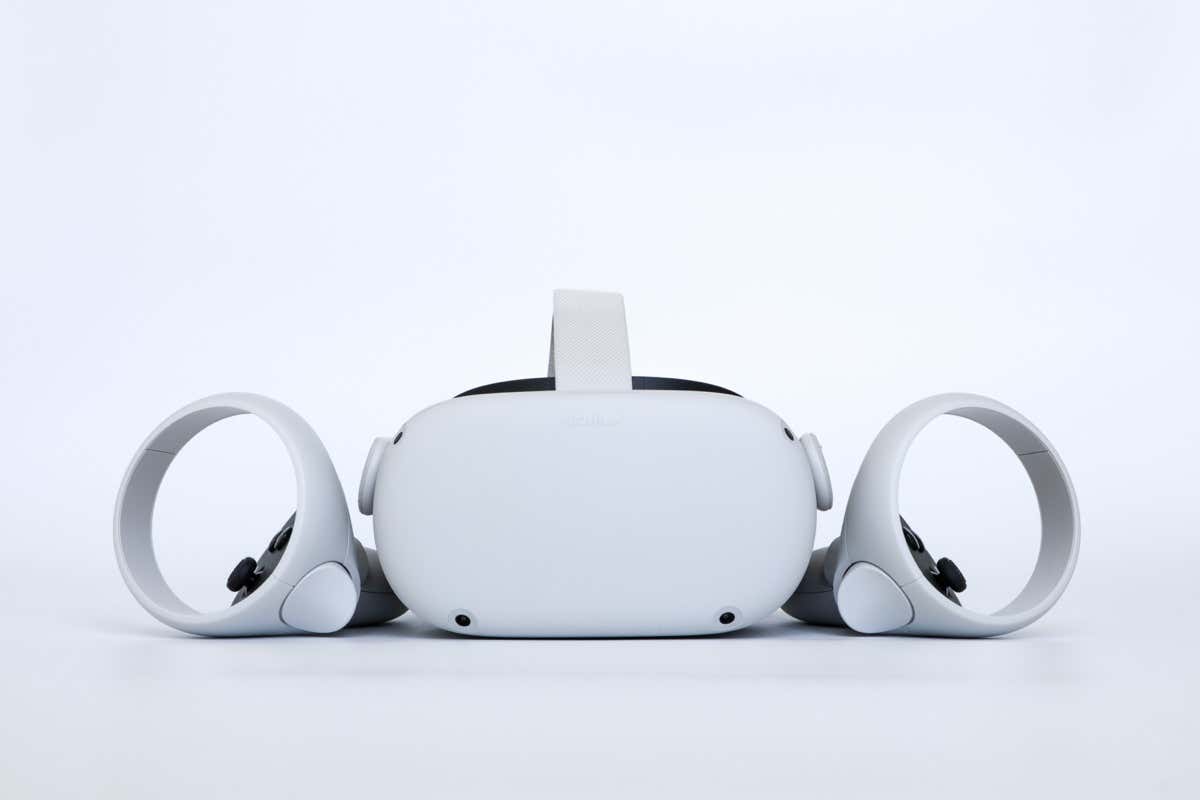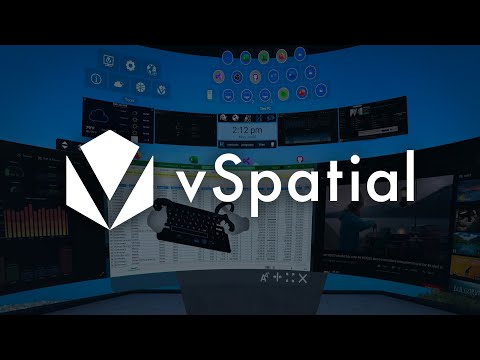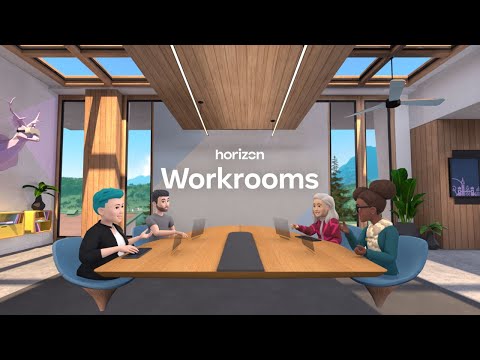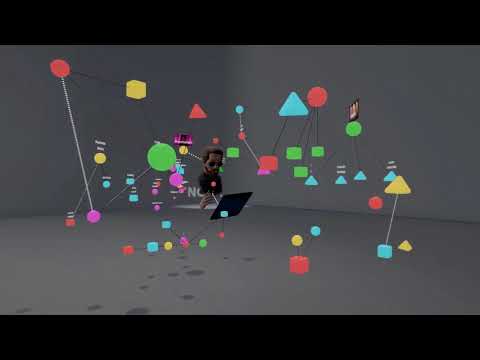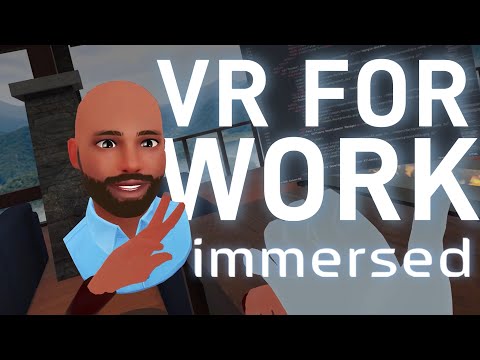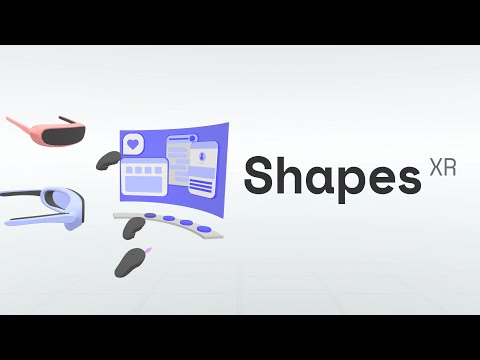This is most readily apparent in the Meta Quest headset, though. Apps like Horizon Worlds have brought virtual workforces closer together and allow you to attend meetings in VR, eliminating much of the isolation and solitude of working from home. Even if you don’t use the Meta Quest 2 headset for that purpose, many productivity apps are still available to streamline your workflow.
1. VSpatial
VSpatial is about the closest app to a real-life JARVIS that exists. It allows users to create an infinite number of virtual desktops and virtual monitors. There are also a host of screen-sharing features that let you show your coworkers precisely what you’re doing.
The ability to connect to your PC means you can take full advantage of its power through the Meta Quest 2, making this an ideal way to do high-intensity work like video and image rendering. There are even entertainment options available within VR, like a basketball hoop you can throw to while you think about your next move. It’s not a full VR game (probably best for productivity), but still a good way to kill time.
2. Gravity Sketch
Do you work in a creative-focused field? Gravity Sketch works like a scaled-down CAD program that allows you to create 3D models within VR, capture concept art, and much more. It’s an excellent way to depict your creations within a virtual whiteboard or set them against a background to visualize the result better. Gravity Sketch offers six different creation tools and three geometry types: Mesh, NURBS, and SubD. Unlimited layers, custom environments, and much more are available to you. Best of all, it’s a free platform. Try it out and see if it’s right for you.
3. Horizon Workrooms
The Horizon Workrooms beta is a way of bringing remote teams back together from anywhere in the world. You set up a “room,” just a virtual office, and your coworkers’ avatars can sit across from you. You can bring images and resources into the virtual space, display them on the whiteboard, and even connect remotely to your computer. While Horizon Workrooms still has room for improvement, it’s off to a great start. The ability to join meetings through a video call on your mobile device if you don’t have VR makes it accessible for everyone. It’s the promise of the Metaverse rolled into an app, and you can even enable passthrough just enough to see your keyboard, making for a mixed reality experience. Horizon Workrooms is also designed to work with hand tracking for better productivity.
4. Noda
Noda is a brainstorming app that tries to create the sensation of standing inside your own mind. You create “nodes” – individual points of interest from which you can branch. For example, you could create a node for “nouns.” From that node, you make three branching nodes for “person,” “place,” and “things.” Then from the “person” node, you create more branches for “George Washington” and “Barack Obama.”
Noda has a free plan that lets you create a limited number of rooms and node systems, and it limits the amount of voice to text that’s available to you. Typing in Noda uses the virtual keyboard that you have to point and click to use, so it’s not an ideal option. If you need more voice-to-text, you’ll need to sign up for one of their subscription plans.
The good news is that the free plan gives you enough of an idea of how the app works to determine if it’s the right choice for you or not.
5. Immersed
When it’s still somewhat iffy to spend a lot of time in coffee shops, many people miss the experience. Immersed places you in a completely virtual workspace while giving you access to multiple virtual screens, along with the ability to bring your keyboard into VR.
It’s perfect for solo work, but you can also use Immersed to interact with your team in a real-time conference room. Multiple monitors are a fantastic way to see more information at once. Immersed is a free application, but you can pay for the Elite version to access a larger workspace with more screens and whiteboards.
6. ShapesXR
ShapesXR is designed for collaboration with your team – specifically, for pitching 3D ideas and models in an easier-to-understand way. This tool is handy for VR and AR content designers, and it also works with multiple game engines so you can explore immersive content in its concept form.
While not as detailed as something created in Maya or Unity, ShapesXR lets you lay the groundwork. You can then export from VR, through the Web, and with plugins. It’s ideal for early planning. ShapesXR is free, but there are in-app purchases you can invest in to expand its functionality and capabilities further.
There are a lot of different apps available on Quest, and some are more niche than others. However, between the ones listed here and those on the way and apps available through platforms like SteamVR via Air Link, there is virtually no end to the amount of work you can get done while wearing a headset.
If you plan to be in virtual reality for long periods, you might want to invest in a more comfortable head strap and an additional battery. Consider a Bluetooth keyboard that works within VR, too – one with low latency to prevent typing errors.
In-app integrations make it easy to use your favorite tools, even if they’re exclusive to Apple or Microsoft, without ever leaving your VR space. Moreover, many of these tools work cross-platform, so it doesn’t matter what your VR platform of choice is. Whether you use the Meta Quest 2 or something like the HTC Vive, you can still work together with people across the globe.
